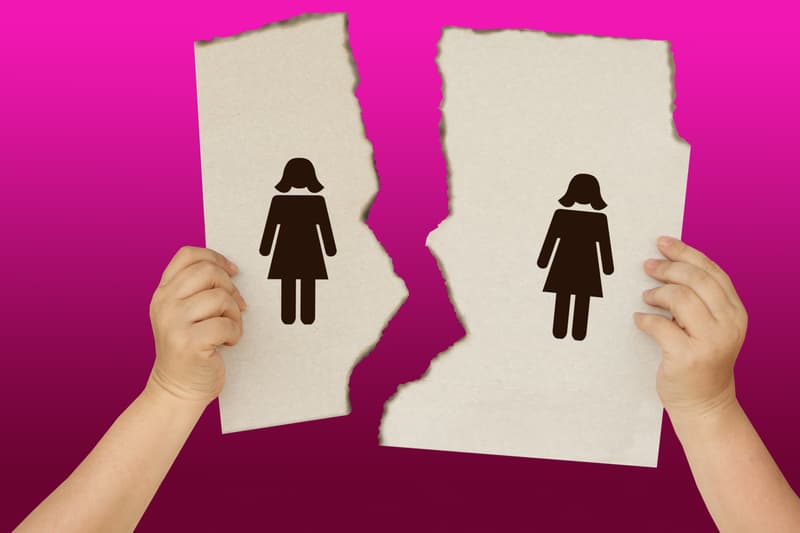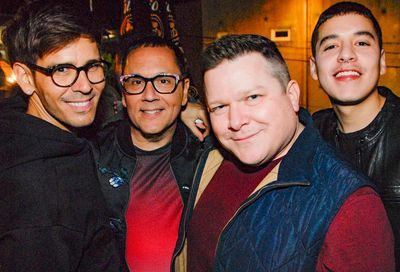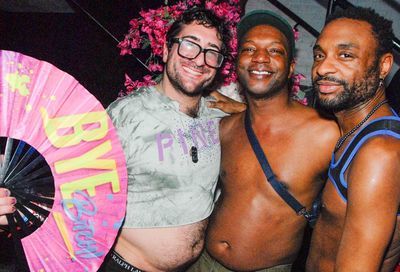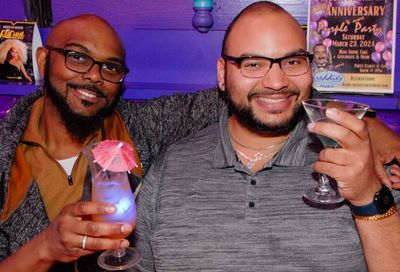Ninth Circuit Sends a Question About Standing to the California Supreme Court
At 11 a.m. Pacific Time today, the U.S. Court of Appeals for the Ninth Circuit issued a series of orders and opinions in the Perry v. Schwarzenegger challenge to Proposition 8. None of them end the case, and none of them are likely — at least immediately — to raise any issue before the U.S. Supreme Court.
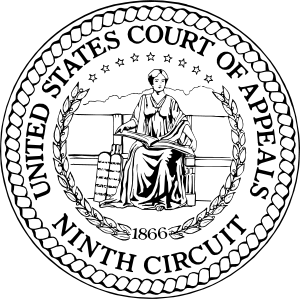 They did, however, send a question to the California Supreme Court through a process called certification about the standing, or ability, of Proposition 8 proponents to bring an appeal. This possibility was raised by Judge Stephen Reinhardt at the oral arguments in the case held Dec. 6. The court, in a second opinion that was heavily suggested at oral arguments, dismissed the appeal of Imperial County for lack of standing.
They did, however, send a question to the California Supreme Court through a process called certification about the standing, or ability, of Proposition 8 proponents to bring an appeal. This possibility was raised by Judge Stephen Reinhardt at the oral arguments in the case held Dec. 6. The court, in a second opinion that was heavily suggested at oral arguments, dismissed the appeal of Imperial County for lack of standing.
Reinhardt explained the issues in a separate, 10-page opinion that was written only on behalf of himself and was critical of both Supreme Court standing precedents and the lawyering by several of the parties in the Perry litigation. Of standing, he wrote, “The standing problem, under current Supreme Court doctrine, affects this case in several ways, all relating to the question of whether there is an intervenor opposed to the district court’s decision that has the right to appeal it.”
One of those questions is the status that California law gives to proponents such as those who supported Proposition 8 in 2008 and then intervened in the Perry case to defend their successful initiative effort. This question is not a settled matter of state law, and today’s certification is an attempt to get the California Supreme Court to do so.
Many state supreme courts allow for this certification process, by which a federal court can seek an answer to a question about an unsettled matter of state law from the highest court of the state responsible for interpreting that law. In the meantime, the main case — here, the appeal of the Aug. 4 ruling striking down Proposition 8 as unconstitutional — is put on hold.
Here, the certified question from the Ninth Circuit to the California Supreme Court asks:
Whether under Article II, Section 8 of the California Constitution, or otherwise under California law, the official proponents of an initiative measure possess either a particularized interest in the initiative’s validity or the authority to assert the State’s interest in the initiative’s validity, which would enable them to defend the constitutionality of the initiative upon its adoption or appeal a judgment invalidating the initiative, when the public officials charged with that duty refuse to do so.
As the three-judge panel of the Ninth Circuit that included Reinhardt that heard the appeal notes, the California Supreme Court need not answer the question, or can “reformulate the question” as it pleases.
At the oral arguments, Reinhardt told David Boies, the attorney for the plaintiffs in the case, “I don’t see what we lose by [certifying the question].” Boies, at the time, said that even if California law gives proponents rights, that doesn’t necessarily give Article III federal court standing because federal standing is different than state law.
Interestingly, the phrasing of the certified question does appear to have considered Boies’s comment by asking specifically whether the proponents have “a particularized interest in the initiative’s validity.” This is a specific legal term that is one of the requirements for federal standing.
The California Supreme Court must now decide if they will decide the certified question. Under the relevant California court rules, “any party or other person or entity wanting to support or oppose the request must send a letter to the Supreme Court” within 20 days of today’s certification and with a copy sent to all the parties in the Perry case. Within 10 days after that, “any party may send a reply letter to the Supreme Court,” again with a copy sent to the parties in the Perry case. Then, a majority of the court must decide to accept the question in order to take the matter. At that point, under the rules, a full briefing schedule of support and opposition to the certified question would take place, with oral argument likely to follow.
Then, an answer would be sent to the Ninth Circuit, which would then take the Perry case back under advisement and decide how it wishes to proceed on the federal standing question, which — as Boies said on Dec. 6 — will not be explicitly answered by the California Supreme Court even if it hears the certified question.
Today’s opinions:
- The Certified Question opinion: 1016696o.pdf
- The Imperial County opinion: 1016751op.pdf
- Judge Reinhardt’s concurrence: 1016751opc.pdf
[UPDATE @ 6:50 PM: In explaining why they have certified the question that they have, the court explains that, under existing state court precedents, “we lack an authoritative statement of California law that would establish proponents’ rights to defend the validity of their initiatives, whether because they have a particularized state-created interest in doing so or because under California law they are authorized to assert the State’s interest, on behalf of the People, in defending the constitutionality of an initiative measure or appealing a judgment invalidating that measure, when the state officials charged with that responsibility refuse to do so.”
Of note is the Ninth Circuit’s implicit rejection of the argument made by Boies at oral argument that the governor and attorney general’s actions not to defend Proposition 8 in court did not “nullify” the voters’ intent because, as he said, “they are enforcing it right now.”
Relatedly, the Ninth Circuit does not address any legal distinctions among what appear factually and perhaps constitutionally under California law to be three very different situations that have arisen over the course of the time since Proposition 8 has been enacted: (1) enforcement of an initiative that has been enacted, (2) defense of an initiative that has been enacted, and (3) appeal of a decision striking down an initiative.
Perhaps, though, all of that is just to say that there is a reason why the court certified the question to the California Supreme Court, which can more authoritatively delve into those questions. Although the federal court appears to believe that California places a high value on the initiative process, it just as strongly appears to be of the view that the state’s highest court has not made clear the legal consequences of that and the basis for those consequences.
Finally, I would note that back in August, in questioning the wisdom of challenging standing in this case, I wrote about the intervention of right granted by Walker to the proponents and the posture of this case in comparison to other federal cases regarding initiative proponents. Although intervention does not equate to standing, it is an indication of whether Walker believed there was the very “particularized interest” protected in California law that the Ninth Circuit is asking about in the certified question to the California Supreme Court. I have reprinted the most significant portion of that post below the jump here.]
[UPDATE @ 6:50 PM, PART II:
I wrote, in part, in August:
There are two types of intervention that a court can grant: intervention of right and permissive intervention. “Intervention of right” is intervention that must be granted by the court, while permissive intervention is discretionary. Judge Walker granted intervention of right in this case, writing in a tentative order on June 30:
The proponents of Prop 8 meet all four of [the rule for granting intervention of right]’s criteria: (1) their motion to intervene is timely, filed just days after plaintiffs filed the complaint; (2) as official proponents, they have a significant protectible interest in defending Prop 8’s constitutionality; (3) their interest in upholding Prop 8 is directly affected by this lawsuit; and (4) their interest is not represented by another party, as no defendant has argued that Prop 8 is constitutional. Significantly, with respect to the last factor, although the responsibilities of the Attorney General of California contemplate that he shall enforce the state’s laws in accordance with constitutional limitations, Attorney General Brown has informed the court that he believes Prop 8 is unconstitutional.
Because the proponents have established their entitlement to intervene as of right, the court GRANTS the proponents’ motion to intervene as defendants.
Perry, Order of June 30, 2009, at 3 (citations omitted). At the hearing on July 2 regarding, among other topics, the intervention motion, Judge Walker asked the parties — including the plaintiffs — if there was any objection to granting the intervention of right. There was no objection, and the intervention of right was granted.
This made sense, as Walker acknowledged, for the obvious reason that it would be hard to hold a trial with no defendant. That no state official would defend it, moreover, goes to show that — despite winning at the ballot box — the proponents could not guarantee that their interest in having the outcome of their initiative enforced would be adequately represented in court.
With that, the trial went forward, closing arguments were held in June of this year and Walker issued his decision on Wednesday.
Now, however, the plaintiffs argued in their filing on Friday that there is a “significant question as to whether proponents even have standing to invoke the jurisdiction of the court of appeals.”
Although the argument was not fully laid out in the filing on Friday, it looks quite weak to me on the legal merits. All of the cases cited by plaintiffs appear from my review to relate only to instances where permissive intervention was granted and not intervention of right, as the proponents have here. Additionally, the cases cited appear to involve situations in which the state whose law or initiative was at issue did itself defend the law and, at some point in the appellate process, decided against appealing a lower decision. Here, of course, the intervening defendants were the only individual or entity defending the amendment even at trial.
So, even if the plaintiffs do attempt to keep the proponents from appealing, it’s not clear to me that they have the legal arguments to succeed.
Now, of course, the California Supreme Court has been asked to resolve this issue.]
Support Metro Weekly’s Journalism
These are challenging times for news organizations. And yet it’s crucial we stay active and provide vital resources and information to both our local readers and the world. So won’t you please take a moment and consider supporting Metro Weekly with a membership? For as little as $5 a month, you can help ensure Metro Weekly magazine and MetroWeekly.com remain free, viable resources as we provide the best, most diverse, culturally-resonant LGBTQ coverage in both the D.C. region and around the world. Memberships come with exclusive perks and discounts, your own personal digital delivery of each week’s magazine (and an archive), access to our Member's Lounge when it launches this fall, and exclusive members-only items like Metro Weekly Membership Mugs and Tote Bags! Check out all our membership levels here and please join us today!






